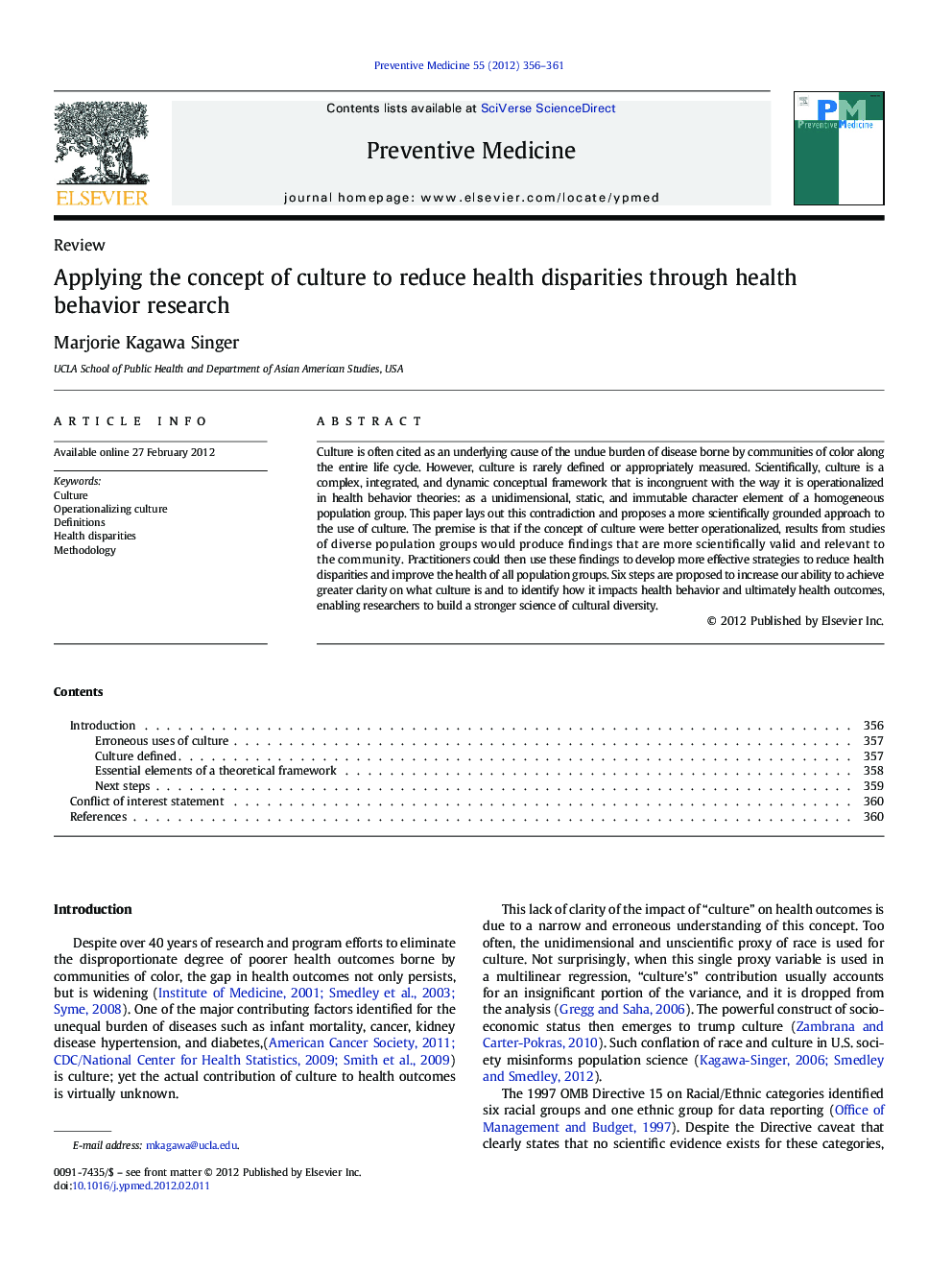| Article ID | Journal | Published Year | Pages | File Type |
|---|---|---|---|---|
| 6047798 | Preventive Medicine | 2012 | 6 Pages |
Abstract
Culture is often cited as an underlying cause of the undue burden of disease borne by communities of color along the entire life cycle. However, culture is rarely defined or appropriately measured. Scientifically, culture is a complex, integrated, and dynamic conceptual framework that is incongruent with the way it is operationalized in health behavior theories: as a unidimensional, static, and immutable character element of a homogeneous population group. This paper lays out this contradiction and proposes a more scientifically grounded approach to the use of culture. The premise is that if the concept of culture were better operationalized, results from studies of diverse population groups would produce findings that are more scientifically valid and relevant to the community. Practitioners could then use these findings to develop more effective strategies to reduce health disparities and improve the health of all population groups. Six steps are proposed to increase our ability to achieve greater clarity on what culture is and to identify how it impacts health behavior and ultimately health outcomes, enabling researchers to build a stronger science of cultural diversity.
Related Topics
Health Sciences
Medicine and Dentistry
Complementary and Alternative Medicine
Authors
Marjorie Kagawa Singer,
